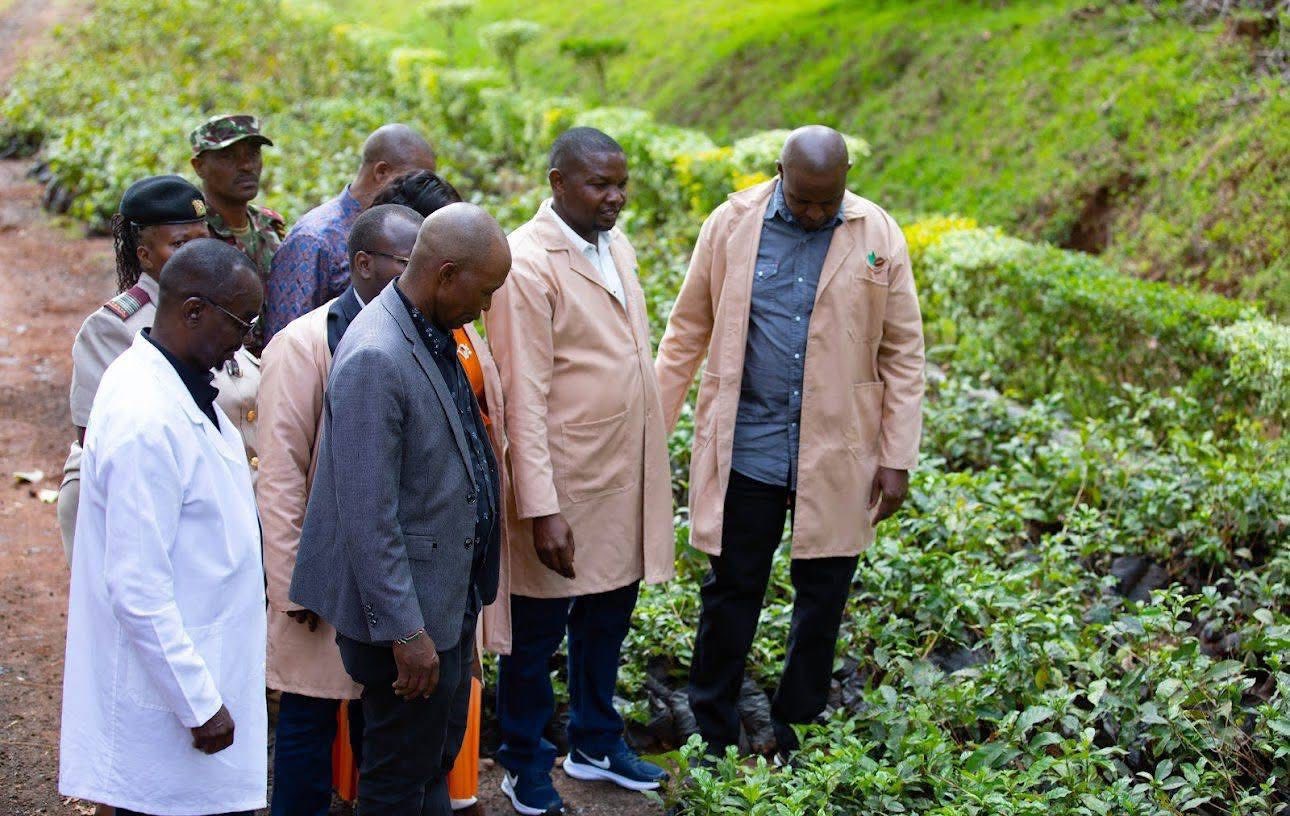The Kenya Agricultural Livestock Research Organization (KALRO), and the Korean government are working together on a programme to manage pests by developing technologies and management practices that resolve modern pest challenges in Machakos County.
The technologies are geared towards enabling farmers to lose less produce to pests that have been ravaging crops and damaging yields of up to 100 percent.
Speaking during the Korea-Africa Food & Agriculture Cooperation Initiative (KAFACI) meeting at Katumani Machakos, to launch the rollout of the extension of the programme, Dr. Zachary Kinyua, the officer in-charge of Coordination of Research in Crop Health at KALRO, said pests, especially the migratory invasive insects like the Fall Armyworm (FAW), have forced farmers to incur high costs of management when it comes to the purchase and application of pesticides.
According to Dr. Kinyua, the Programme dubbed “development of Pest monitoring and ecofriendly control technologies for Africa” will tone down the usage of very toxic chemicals, which farmers have been using, by coming up with technologies that are friendly to the farmer, and that are going to be cost-effective in the management of pests
Dr. Muo Kasina from KALRO and the Principal Investigator (PI) of the programme said they are strongly developing mechanisms for monitoring the populations of insects so that they reduce their effects before they become a problem.
“Initially farmers were not using a lot of pest control products on maize, but now you cannot grow maize without pesticides. And one of the things we are doing is working to reduce the use of pesticides by using fungus to control the fall armyworm and using parasitoids.
Dr. Kasina added that they are further working to develop models in a form of MET for pests by using climate data and prediction models, which includes developing eco-friendly technologies such as resistant maize varieties, biological controls, and farmer training.
“This extension program is going for five years 2025-2029, and we expect to come up with three kinds of outputs and one of them is being able to give farmers something like an app or a product that they can use at home to know whether the pest is going to increase, to reduce and whether they need to apply some pest control products targeting insects like fall armyworm,” he said
ALSO READ:
Senate committee, taxpayers group seek stronger oversight in agriculture sector
He added that they are working towards bridging the gap by developing information on pest management that has been missing and also advising the policymakers on the best practices and information-sharing platforms that can be used to manage these pests
“When it comes to knowledge sharing, one of our findings from the Masii area is that most farmers were getting information from agrochemical stores, but we want to bring information close to farmers from research, and instead of them looking for information all over, they have something tangible that when they open, they can get information close to them and reduce misinformation,” Dr. Kasina said.
He added that working with farmers and also extension officers will see the information trickle down to farmers, and we are geared towards providing technologies that can work across the country.
Kennedy Senagi, a data scientist and software engineer from the International Centre of Insect Physiology and Ecology (ICIPE), said they are building models from information collected from farmers and even experts and looking at regions that are suitable and where the pest could be moving or migrating to.
“The models guide us to inform us where possibly the pest will move to and this will in turn be used by stakeholders and experts to move in and put possible interventions and appropriate measures to combat and reduce the spread of these pests,” he said
Muthui Mutisya, Ward Agricultural Officer in Masii Ward, Machakos, said they are promoting good agriculture practices so that farmers can get food and money.
“The emergent pests have been affecting farmers’ yields, and we have been cooperating with experts from KALRO to ensure a way is found to eradicate the pests and prevent them from spreading, and we are not recommending to farmers to use the technologies being brought about, such as IPM approach, to protect their crops
Mutisya said as extension officers they will continue to train farmers through demos, farm visits, talking to farmer groups, and ensuring that they get information needed to address the pest menace.
With a 5-year initiative, the KALRO and KAFACI aim at discovering, developing, and piloting innovations in pest management to reduce reliance on chemical pesticides and promote sustainable agriculture, with a strong emphasis on biological control using natural enemies and habitat management.
By Our Reporter
Get more stories from our website: Sacco Review.
For comments and clarifications, write to: Saccoreview@
Kindly follow us via our social media pages on Facebook: Sacco Review Newspaper for timely updates
Stay ahead of the pack! Grab the latest Sacco Review newspaper!



